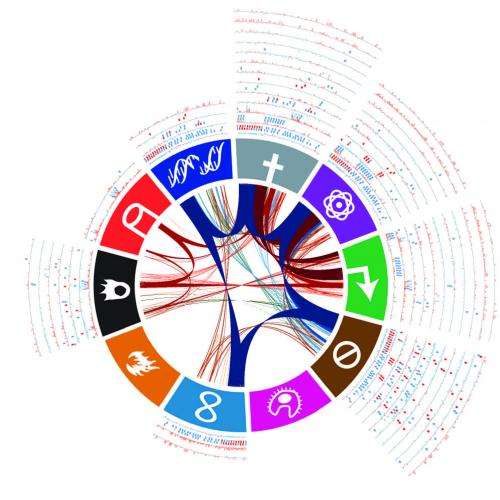Two studies could lead to new personalized therapies for lung cancer patients

Lung cancer is a leading cause of death worldwide and is associated with very low survival rates. Two new genome-sequencing studies have uncovered novel genes involved in the deadly disease, as well as striking differences in mutations found in patients with and without a history of smoking. The findings, published September 13th by Cell Press in the journal Cell, could pave the way for personalized therapies that boost survival rates.
"These efforts should spur more studies to fully understand the genomic landscape of lung cancer—more specifically, those who have no history of tobacco smoking," says study author Ramaswamy Govindan of Washington University School of Medicine. "This will help us to identify new targets for therapy to improve the outcomes of our cancer patients."
Lung cancer kills more than 1.3 million people each year, and the five-year survival rate is only about 16%. Although smoking is a major risk factor for the disease, a large percentage of these patients have no history of smoking. Past studies have suggested that different types of cancer patients, including smokers and non-smokers, may have different sets of mutations that could affect how well they respond to drug treatments.
In one of the new studies, a team led by Richard Wilson of Washington University School of Medicine sequenced the genomes of tumors from patients with non-small cell lung cancer (NSCLC)—the most common type of lung cancer. They found that the mutation rate was more than ten times higher in tumors from smokers than in those from non-smokers with NSCLC, and these two groups had different sets of mutations. Moreover, the researchers revealed mutations that could be responsible for triggering the disease and identified changes in 54 genes that could be targeted with existing drugs.
The second study, which was led by Matthew Meyerson of the Broad Institute and focused on a subtype of NSCLC called lung adenocarcinoma, also found different patterns of mutations in tumors from smokers compared with those from non-smokers and revealed mutations in genes never before implicated in cancer. "This is the largest genomic study of lung adenocarcinoma to date," says study author Alice Berger of the Broad Institute. "Our results are a testament to the power of large-scale next-generation sequencing technology to expand our understanding of tumor biology."
More information:
Govindan et al.: "Genomic Landscape of Non-small Cell Lung Cancer in Smokers and Never Smokers." DOI:10.1016/j.cell.2012.08.024
Imielinski et al.: "Mapping the hallmarks of lung adenocarcinoma with massively parallel sequencing." DOI: 10.1016/j.cell.2012.08.029













